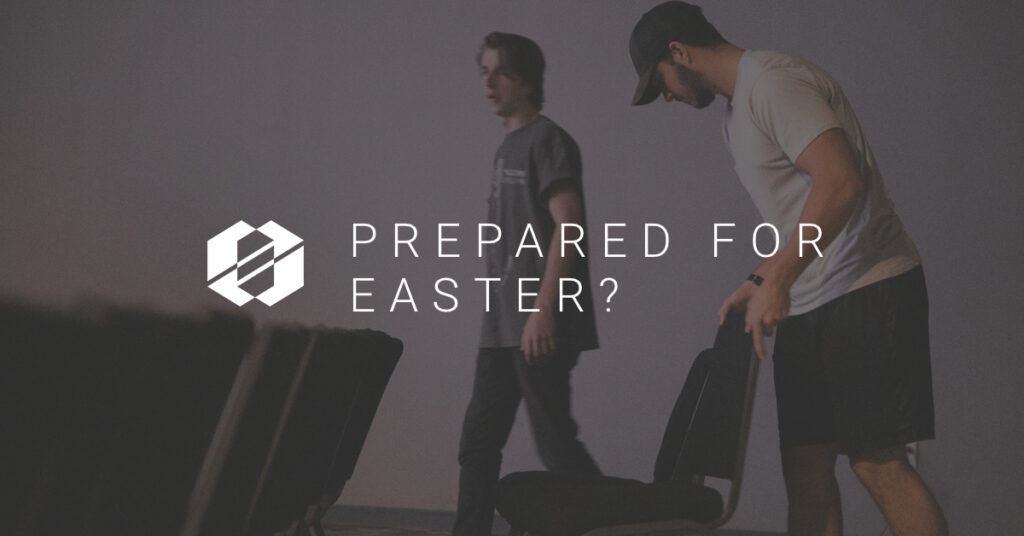Finding volunteers who are willing to take the time to learn how to be part of the tech team can be challenging. I find most churches have relatively small group of people in their entire congregation who even can do it, let alone who are willing to do it. Once you find those folks, it’s critical to train volunteers well. Failure in finding a proper process to train volunteers is akin to setting them up to fail. Which means, if they fail, it’s our fault.
Sometimes churches will just have a new volunteer start showing up and stand behind the mixer with an existing operator. The existing tech may show them a few things—this control does this, that control does that—and a week or two later the unsuspecting newbie is thrust into the limelight. It’s not a great way to start things off—for anyone.
I’m occasionally asked how I train volunteers specifically in tech ministry, and today I’ll pull back the curtain to that process (not that it’s that super-secret…). The first thing I always tell prospective tech team volunteers is that this is going to be a process, sometimes a long process. Don’t expect anyone to go from, “Hey, I’d like to learn sound,” to mixing FOH solo in less than 6 months. Occasionally I’m surprised, and it’s possible that someone could do it if they were there every weekend. But most can’t be, so it takes 6-12 months to get them fully prepared to handle a weekend. Presentation, cameras and lighting have shorter learning curves, but there is still a training season.
And when I say fully prepared, I mean that they could handle all the audio needs of a service if I wasn’t there. Here are some general thoughts on the process I developed at my last church to train volunteers. I’ll use audio as an example as the process is the most involved. You can scale this up or down for other positions.
1. Start at the Beginning
As we know from The Sound of Music, that’s a very good place to start. Our audio trainees will spend a few months getting to know the mic locker, our cable storage system, our stage layout and learn to set up the stage. Only after they can set the stage by themselves with only the aid of an input sheet are they allowed to learn the mixer at all.
Too often, people want to start learning the mixing board right off the bat. I believe this is a bad idea for two reasons. First, the FOH position is a servant position. As important as knowing the equipment and having a good ear, a really great FOH engineer is a servant. FOH can also be viewed as a prestigious position, and putting someone in there too soon can lead them to forget why they’re there.
Second, when someone learns the mixer, but doesn’t have a very solid grasp of how the audio gets there, if something, anything, goes wrong, they have no clue how to fix it. Intimately knowing the entire signal path will make it far easier to track down trouble.
2. Use Milestones, Not Time
Everyone learns at their own pace, and it’s important to not force people into the next level if they’re not ready for it. It’s also important to not hold people back. Some volunteers will pick this up really quickly and can move on to the next level sooner than others. Let them. Holding them back will frustrate them and you.
It’s important to have a series of milestones that can be agreed upon as points to move forward. For example, when someone can set the entire stage by themselves, they can move on to basic training on the console. Some people will get that in a month. Others will take 6 months; either is OK.
I promise every prospective tech volunteer that I will stick with them as long as it takes. It’s important to be in this for the long haul.
Now, some people are just not going to get it, and we need to deal with that separately. And we may find that some will never get to full-fledged weekend FOH engineers. But we’ll find people who can be great A2s or set up/tear down folks, and we’ll find people that can handle simple events, like a mid week service.
3. Don’t Train Volunteers on Weekends
The weekend service is perhaps the worst time of all to train volunteers. There is a lot at stake, we have deadlines to hit and if anything goes wrong, it’s bad. Plus it’s really hard to stop and talk during the service.
I always prefer to train volunteers during the week. We spent a few thousand dollars pulling together the equipment we need to do a virtual soundcheck so I can train people whenever. It sounds like a lot of money, but if you want well-trained audio volunteers, it’s worth it. Smaller churches can do this on a smaller scale, though it takes a little more work.
In our process, trainees will spend time behind the board with me getting to know it during the week. We’ll spend as much time as necessary for them to feel comfortable. They can ask questions, twist knobs and move faders to their heart’s content without fear of consequence.
Remember, this is a tough position. As my friend Van says, “It can take a year to learn to mix FOH, but it takes a lifetime to get good at it.” Don’t rush the process, tempting as it may be.
All this can be applied to any tech position. When I brought on new presentation techs, we practiced and trained during the week or on Saturday morning. We’d play tracks through the PA at normal levels and let them punch through a song. As they became more comfortable editing slides and graphics, they took on more of that role.
Whatever you do, it’s important to have a process. Take the time to write up job descriptions for each position you want to fill. Give that to each new volunteer. Write down your training process, which may be different for each position.
Approaching training in a logical, consistent way, everyone will be better off.





